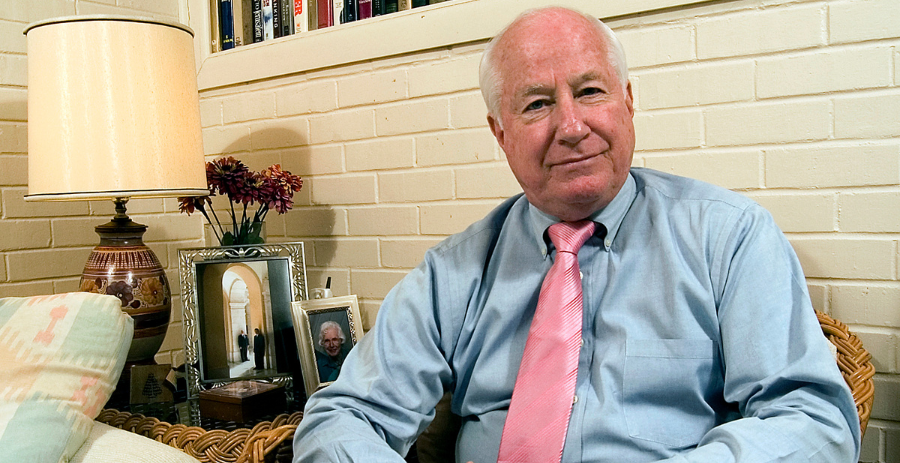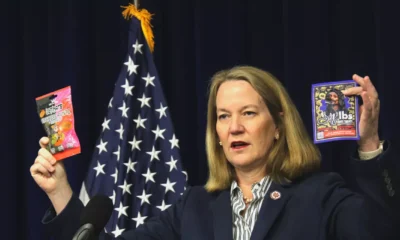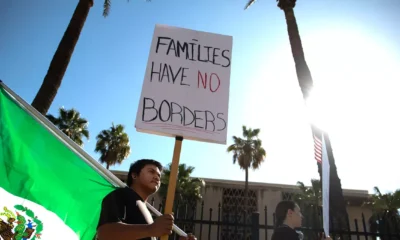Fashion
From Boycotting Bush to Backing Trump: The Evolution of Arizona’s Log Cabin Republicans

In 1996, Arizona witnessed a significant moment for gay Republicans. U.S. Rep. Jim Kolbe publicly came out as gay, followed by Tempe Mayor Neil Giuliano. Steve May was vying to become the first openly gay Republican in the Arizona Legislature, and the Log Cabin Republicans of Central Arizona began hosting meetings, signaling a growing presence in state politics.
“We really thought ‘96 was a real critical year, an inflection point in the Republican Party accepting gays,” May said.
Fast forward nearly three decades, and a new generation is rejuvenating the organization, aligning its agenda more firmly with the shifting ideals of the modern GOP. Despite excitement from past members about the group’s resurgence, some, including May, feel that the contemporary focus could be diverging from their original goals.
Founded in California during the 1970s, the Log Cabin Republicans now boast chapters across 36 states, representing the largest group of LGBTQ+ conservatives in the U.S. LGBTQ+ voters have traditionally leaned Democratic; however, research indicates that a significant minority identifies as Republican, highlighting a notable faction within the community.
Current Log Cabin members and advocates assert the necessity for the Republican Party to progress on LGBTQ+ issues in Arizona. Since its inception, the group aimed to create an inclusive environment within the GOP, with varying degrees of success.
Initially, the Log Cabin Republicans of Central Arizona made waves in the local political landscape. The group endorsed May’s campaign for the state Legislature in 1996, growing to host gatherings with GOP officials.
Reflecting on its early days, May reminisced about the initial meetings, which transitioned from intimate gatherings to local venues like the Spaghetti Factory. Despite this, May ultimately lost his legislative race, a situation attributed to balancing two distinct political spheres.
May’s loss didn’t hinder the organization. With support from Log Cabin members, he successfully campaigned again in 1998, eventually passing legislation to repeal Arizona’s sodomy laws, thus advocating for LGBTQ+ rights from a Republican platform.
The 2000s brought challenges, as the organization endured shifts in leadership and public perception. After a period of struggle during the early 2010s, Matt R. Salmon revived the chapter in 2009, drawing in new members through personal connections.
As LGBTQ+ rights advanced nationally, Arizona’s Log Cabin struggled to maintain momentum. Leadership changes left the group inactive for several years, despite historic victories for LGBTQ+ rights.
A resurgence emerged in 2020, spearheaded by new leadership aiming to reactivate the Phoenix chapter, now boasting over 150 members attending monthly events with political figures.
Though the organization has made strides, it grapples with resistance from the broader LGBTQ+ community and challenges in securing venues due to its political affiliation. Members are often criticized for supporting candidates seen as antagonistic to LGBTQ+ rights.
Despite the contention, current Log Cabin leaders express a firm belief that the Republican Party is evolving into a more gay-friendly entity. Advocates assert that significant progress has been made and are committed to influencing GOP policies in Arizona.
Yet, several former members observe a divergence in the organization’s trajectory, lamenting that its current alignment with controversial figures could jeopardize past achievements in LGBTQ+ rights. May cautions that any support for authoritarian figures could undermine progress.
Amid these tensions, the group remains dedicated to its mission. Members envision the revival of the Log Cabin Republicans in Arizona as a sustainable, final iteration, hoping to create lasting change within the Republican Party.


















